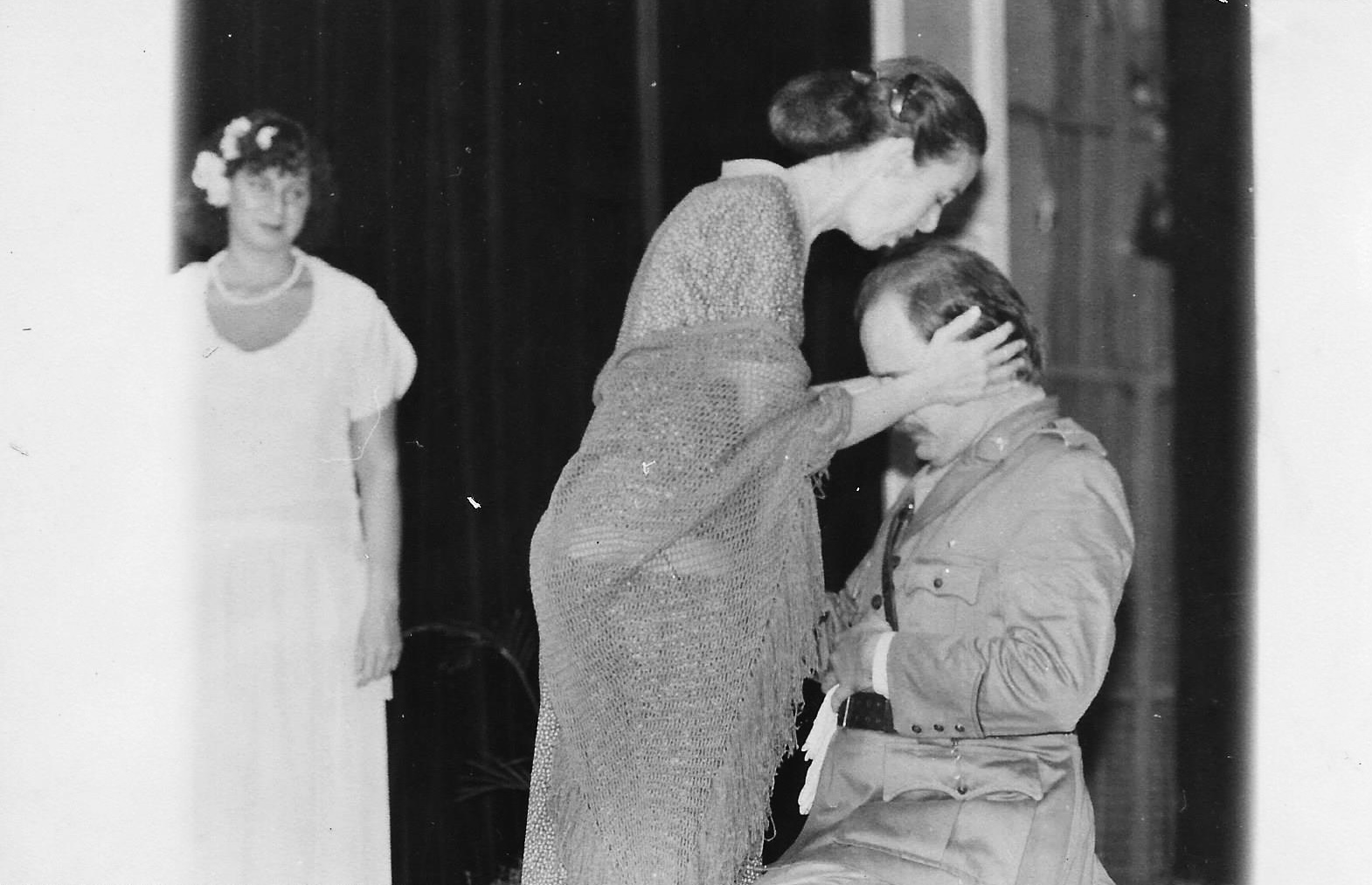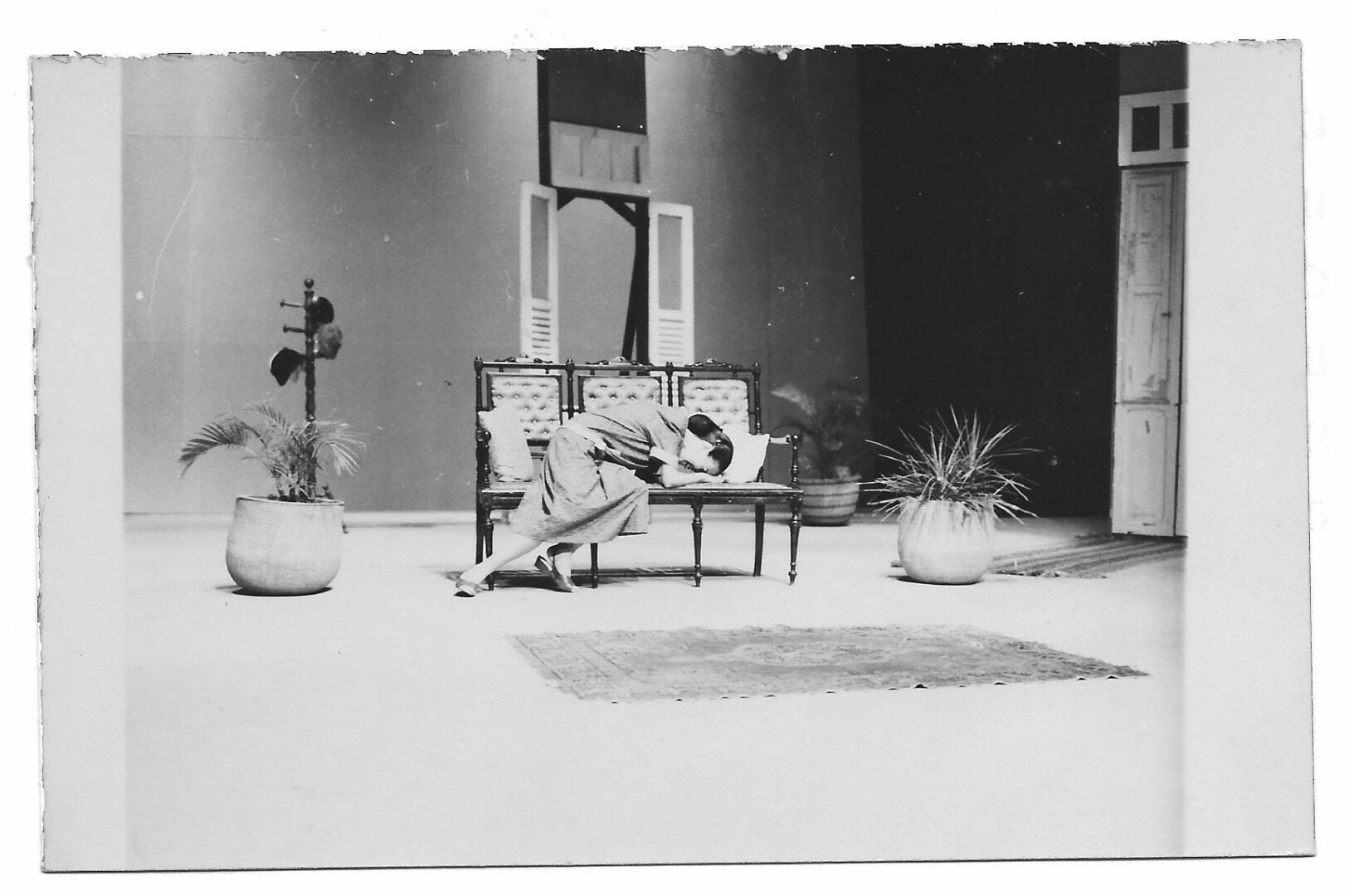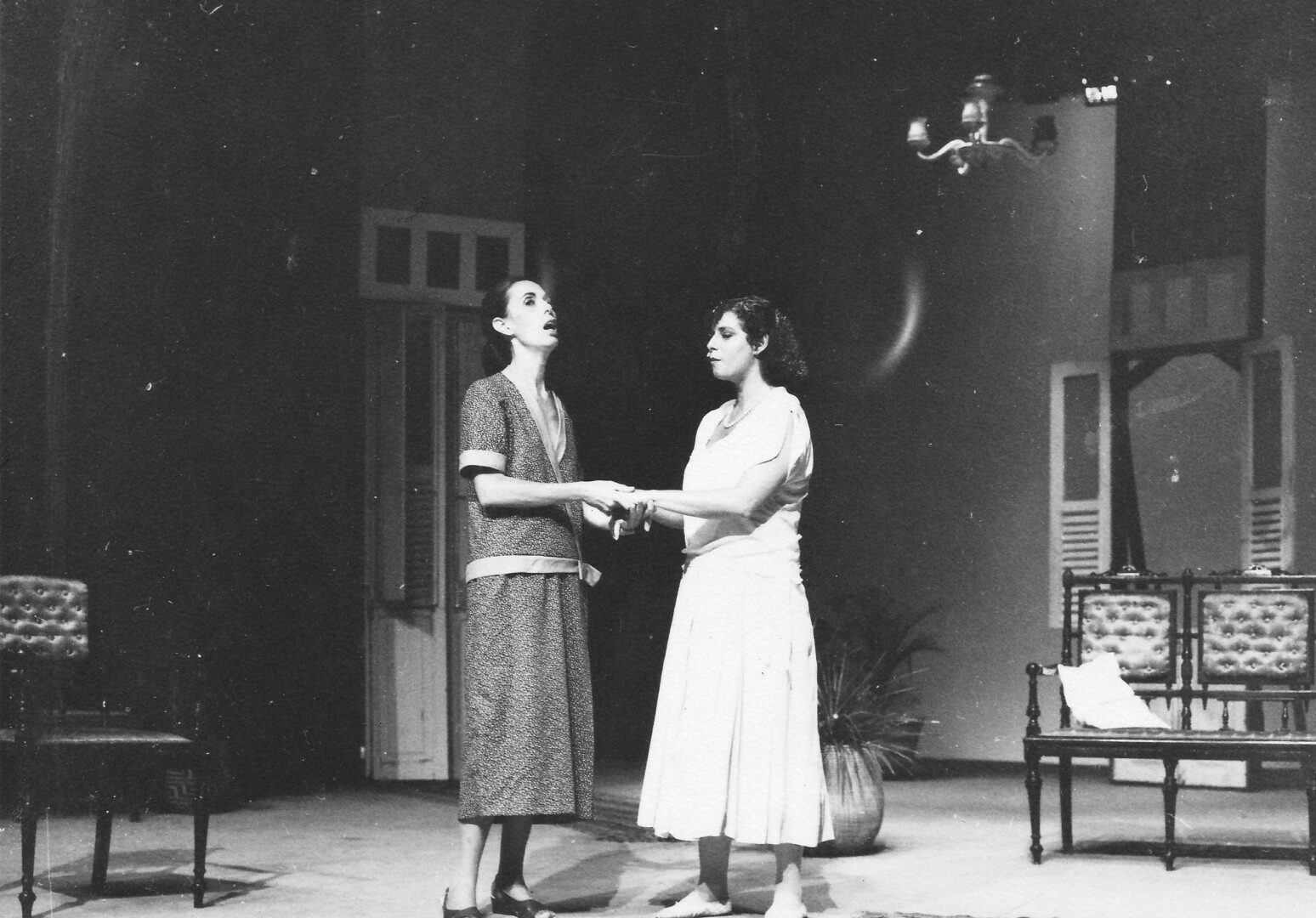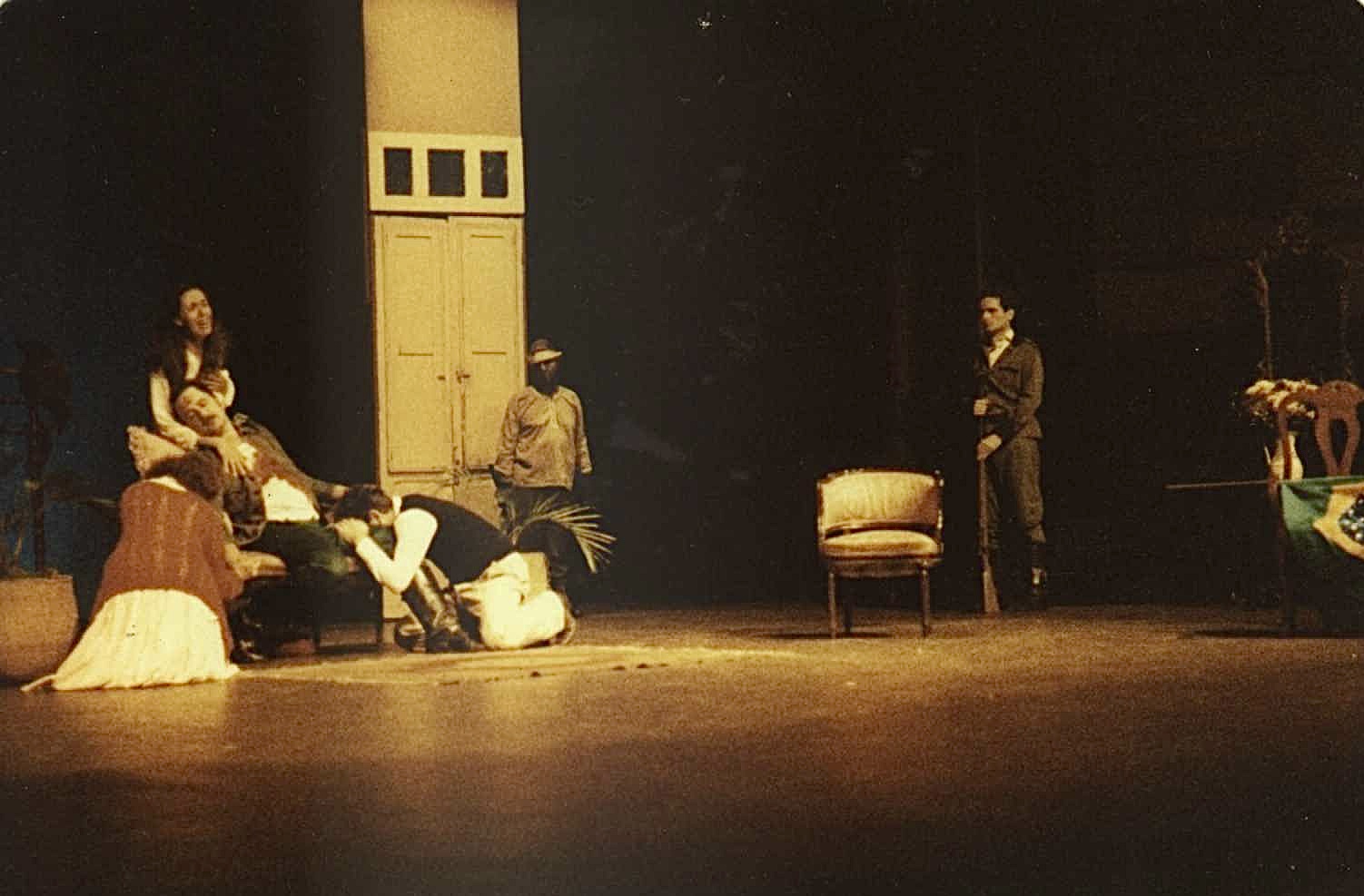In the years of greatest repression, seeking a way to stay alive in a time of death, the founders of Tá na Rua gather to study “Morrer pela Pátria” and discover that they want to “live for life”. “Morrer pela Pátria,” by Carlos Cavaco, is a fascist play written in Brazil in 1936 (after the communist uprising of 1935, before the Estado Novo of 1937), a moment of great significance in the country’s history. It shows a divided family. Two brothers — one a reserve officer, the other a communist — plunge into a conflict of ideas. At this moment, the Communist Uprising explodes. The officer goes to fight, where he is shot and taken back to his home, where he dies. The younger son, a communist, regrets his brother’s death and goes out into the street to kill the communists.
From the study of this text, everything was born. Throughout the process, the group developed a language that allowed them to speak about that authoritarian proposal without resembling it. As they deepened their understanding and unraveled the authoritarian language, a popular, lively, joyful, transformative, and health-promoting language emerged. An open and free theater born from the contradictions of authoritarianism.



